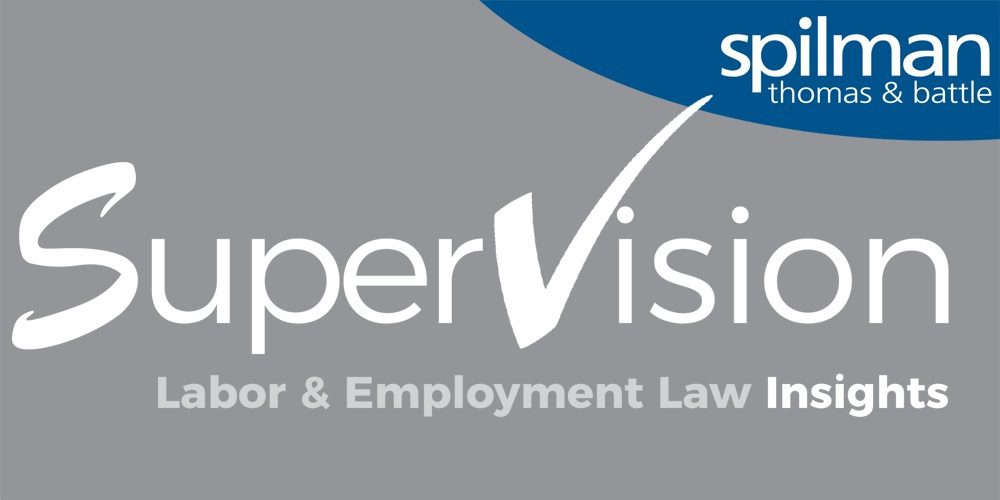Article
Resources
Article
FMLA Doesn’t Allow an Employee to Nap on the Job – Does It?!

The Family Medical Leave Act (FMLA) – a federal law that provides 12 weeks of unpaid leave to employees for their own serious health condition or a family member’s serious health condition – can present tricky situations for employers. Though each FMLA case is different and must be decided on its own facts, employers can look to past FMLA cases for guidance. One recent FMLA case captured national attention because it asked a federal court: is an employee’s on-the-job nap covered by the FMLA? While many would immediately assume that the answer is “No, of course she cannot sleep on the job!”, the answer is more nuanced.
In this case, the employee/plaintiff was a nurse working in a hospital that suffered from debilitating migraines. When these migraines hit, the employee would miss work or “disappear” from her shifts. The employer gave her a written warning for attendance and encouraged her to apply for FMLA leave. The employee did so, and was approved for an intermittent leave of absence under the FMLA, which meant that she could miss work at irregular times (or on an intermittent basis) when she was suffering from a migraine. When seeking to take intermittent leave, the employer instructed the employee to report a migraine to the nurse operations manager or a colleague before excusing herself from a shift. The employee understood and agreed to this reporting procedure.
For several months, there appear to have been no issues with this procedure for those instances when the employee needed to take leave related to her migraines and her need for intermittent leave. Eventually, however, an issue arose when the employee/plaintiff developed a migraine while caring for a pregnant patient in active labor. The employee excused herself, leaving the patient alone, and went to a nearby darkened room to take her migraine medicine. Thereafter, plaintiff fell asleep. Plaintiff did not inform anyone at the hospital prior to leaving the patient unattended, or before she fell asleep. The employer terminated the employee/plaintiff, considering her actions to constitute a major violation of policy that endangered both the unattended patient and the employee.
The employee later brought a lawsuit for FMLA interference, claiming that the employer was required under the FMLA to permit her nap since it was caused by her “serious health condition,” i.e., her migraine. While the Court recognized that there were circumstances where the employer may be required to permit the employee to take the nap, in this case, the employee failed to provide notice of her need for FMLA leave. According to the Court, the deciding fact was that the employee did not tell the nurse operations manager or a colleague about her migraine before leaving the patient, taking her medicine, and falling asleep—all of which spanned several hours. This failure to provide notice was fatal to her claim and the Court granted summary judgment for the employer.
The employer’s actions in this case provide valuable insights and best practices for FMLA compliance, including:
- The need to have a written FMLA policy (in language that is clear and understandable for employees) and to use standardized FMLA forms;
- Communicating the availability of FMLA leave to the employee (this should be done often including, but not limited to, posted notice posters in common areas, at orientation/hire, in a written policy or handbook, and regularly during employment);
- Having a clear reporting structure or designated FMLA person;
- Making sure the employee knew the steps she needed to take in order to notify the employer of the need for leave;
- Training supervisors and managers on how to recognize situations in which the FMLA might apply and requiring them to report those situations to the appropriate person;
- Remembering that both physical and mental health conditions may spark a need for leave under the FMLA, and understanding that these conditions may overlap with an employer’s obligations to accommodate an employee’s disability under the Americans with Disabilities Act.
Employers should not:
- Have management or supervisors stay silent, downplay, or disregard a FMLA-qualifying situation;
- Disparage or “joke” about an employee who applies for or receives FMLA leave;
- Retaliate against someone for applying for or receiving FMLA leave;
- Consider an employee’s application or use of FMLA leave in any performance evaluation; or
- Fail to document communications with an employee about situations where the FMLA might apply.
The FMLA is a federal law; however, many states have developed a state counterpart. Thus, while employers may not be governed by the federal law, employers should determine whether a state law may impose similar obligations. At its heart, the FMLA applies when employees need leave/time away from work due to a serious health condition (themselves or others), the birth or adoption of a child, and related to military exigency leave or to care for an individual suffering from an injury incurred as a result of military service. Determining when, how much, and under what circumstances an employee may be entitled to leave under the FMLA (or state counterpart) is highly technical, and the law imposes deadlines on employers to comply with the requirements of the FMLA. Employers with questions about FMLA compliance, the intersection of the FMLA with the ADA, and any other leave issues should contact a member of Spilman’s labor and employment team.


